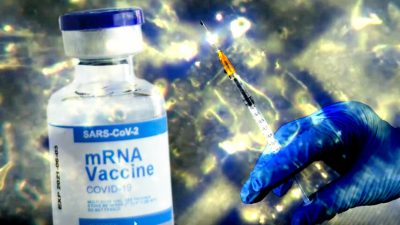Bird Flu Summit: The pandemic-vaccine industry is gathering for a second time to push for bird flu vaccinations

The second international Bird Flu Summit is taking place in a few months. It is proclaimed to be a global event that brings together experts, innovators and stakeholders to address the pressing concerns surrounding avian influenza. The summit aims to foster collaboration and knowledge exchange to combat the spread of bird flu and its impact on human and animal health, as well as the global economy.
In line with the World Health Organisation’s vision, the conference is taking a One Health approach. The outcome of the first Bird Flu Summit was that vaccination is a critical tool to mitigate the spread of bird flu. We can expect the outcome of the second to be the same.
The First International Avian Influenza Summit was held on 16-17 October 2023, at the University of Arkansas, USA, with a focus on research, policy, and industry collaboration. At the gathering, 23 speakers made presentations over the two days and 1,842 people registered as participants from 81 countries.
Announcing the 2023 Summit the University of Arkansas quoted Guillermo Tellez-Isaias, research professor for the Centre of Excellence for Poultry Science and the Arkansas Agricultural Experiment Station, who chaired the organising committee for the summit. He said the event was to address the effects of highly pathogenic avian influenza (“HPAI”) which has “wreaked havoc on the poultry industry worldwide since the latest outbreak began in 2022.” And so, the fear-mongering stage was set for a pandemic, that never was but, that nevertheless needed action.
“This groundbreaking summit, set to take place in Fayetteville, Arkansas, USA, on 16-17 October 2023, promises to be a significant milestone in the global efforts to combat Avian Influenza. Through the convergence of leading experts, innovators, and stakeholders worldwide, we aim to forge new frontiers in research, policy, and industry collaboration,” the welcoming address to the Summit participants stated.
The welcoming statement continued: “Together, we will explore the latest advancements in avian influenza research, surveillance strategies, vaccination initiatives, and emergency response protocols. Moreover, this summit provides a vital platform for fostering collaborations between academia, industry, government agencies, and non-governmental organisations.”
Unsurprisingly, vaccination was identified at the Summit as a critical component in the fight against bird flu. The outcome of the 2023 Summit was an article titled ‘Vaccination against highly pathogenic avian influenza (HPAI): From opposition to acceptance’, co-authored by Awad A. Shehata and Tellez-Isaias.
Vaccination has been identified as a critical tool in mitigating the spread of HPAI. However, the acceptance and implementation of avian influenza vaccination programmes have been met with opposition from various stakeholders, including poultry producers, public health authorities and consumers.
Over time, advancements in vaccine technology and extensive research demonstrating the safety and effectiveness of HPAI vaccines have gradually shifted perceptions. Adopting innovative vaccination strategies, such as vector-based vaccines and recombinant technologies, has addressed previous limitations and bolstered confidence in immunisation as a viable control measure.
Vaccination against highly pathogenic avian influenza (HPAI): From opposition to acceptance, German Multidisciplinary Publishing Centre, vol.3 issue 1, October 2023
Vector-based vaccines and recombinant technologies have “bolstered confidence in immunisation,” the two authors claimed Really? We have to question which planet Shehata and Tellez-Isaias reside on. Here on planet Earth, people know that the vector-based covid “vaccines” (Janssen or Johnson & Johnson and AstraZeneca) and the recombinant technology such as used in the mRNA (Pfizer-BioNTech and Moderna) and DNA (AstraZeneca) covid “vaccines” are both unsafe and ineffective.
Another outcome of the 2023 Summit was to hold another summit on bird flu, this time, again unsurprisingly, to incorporate the nefarious One Health ideology. The second bird flu summit, ‘The International Avian Influenza and One Health Emerging Issues Summit’, is scheduled to take place from 30 September to 3 October 2024 at the Don Tyson Centre for Agricultural Sciences, in Fayetteville, Arkansas, USA.
“Avian influenza has adapted to mammalian species, and it is now endemic in the United States,” said Tellez-Isaias who is one of 14 organisers for the summit, hosted by the Division of Agriculture and the University of Arkansas Dale Bumpers College of Agricultural, Food and Life Sciences.
The number of speakers has doubled over last year as has the conference duration with 46 speakers scheduled so far over the four days. The website offers no details on who the speakers are nor who is funding the Summit.
“Knowing the virus could mutate, organisers of the summit had already expanded the outlook to include other species and emerging diseases before the 25 March outbreak of H5N1 highly pathogenic avian influenza, or HPAI, in dairy cows,” an announcement for the conference in May 2024 said. And so, as its title indicates, the 2024 summit will follow the One Health ideology.
In their minds, a One Health approach is needed because avian influenza is a significant global health concern which requires a collaborative effort among human health, animal health and environmental health sectors to combat the spread of bird flu.
But here’s the problem. Bird flu does not transmit to humans. If it does it will be because it has been engineered in a laboratory using gain-of-function research. In other words, the bird flu virus has been genetically altered to enhance its biological functions, which can include altering the pathogenesis, transmissibility or host range.
Separating Fact from Fiction
Don’t be fooled by the government narrative, mass indiscriminate H5N1 (Bird flu) PCR testing, culling and avian influenza vaccine campaigns.
In February 2023 when there were attempts to bring the bird flu back, yet again, Dr. Sherri Tenpenny said that it was “bird flu” in 2005 that was when the biggest power grab in history began and it is the bird flu that set us up for where we are today.
There have been many “outbreaks” of H5N1 and other strains of highly pathogenic avian influenza in the US and various parts of the world over the last 150 years. The previous outbreaks have a striking similarity to the current ramping up of global hysteria. And, like historical outbreaks, reports of human illness and human deaths have been exceedingly rare.
Bird flu in 2005 was used to begin the biggest power grab in history – now it’s back, The Exposé, 7 March 2023 or see the Dr. Tenpenny’s Substack page HERE
More recently, Dr. Peter McCullough has been trying to raise awareness about the ramping up fear about a bird flu pandemic and recently published an update on the current H5N1 global situation.
The McCullough Foundation’s informative current H5N1 global situation has received considerable attention and garnered valuable feedback, Dr. Peter McCullough noted in a Substack article last week referring to the video below. He noted the following key takeaways.
1. Practice of culling (mass destruction of entire healthy flocks) when a PCR test is found positive to “eradicate” the virus is futile and may work to constrain the food supply. The current strain H5N1 clade 2.3.4.4.b is not thus far causing necropsy or radiographic confirmed fatal pneumonia in birds or mammals.
2. H5N1 host range expansion into migratory birds and mammals likely occurred as a result of gain-of-function serial passage research and a lab leak.
3. Increased transmissibility of H5N1 has a trade-off of decreased virulence. Using legacy human mortality rates from cases in Southeast Asia is not appropriate. The US has never had a fatal human case of bird flu.
4. Fear-mongering promulgated by the Bio-Pharmaceutical Complex is designed to promote mass vaccination of animals and humans with lucrative pre-purchased contracts to the vaccine manufacturers and their NGO backers. Mass vaccination into a highly prevalent pandemic since it promotes resistant strains of the virus in the vaccinated.
5. If human-to-human spread occurs in the future as expected by many, it will be the product of gain-of-function research that has gone on for years with the goal of creating harm to human populations.
Bird Flu Vaccine is Unsafe
Last month we published an article giving an overview of the bird flu vaccines for animals and humans. In it, we noted that the proposed CSL Seqirus vaccines contain squalene (also known as MF59), which has been shown to cause neurological disorders and cause the body’s immune system to self-destruct.
Last week, Dr. Jessica Rose published an article reviewing the information from clinical trials of CSL Seqirus’ AUDENZ bird flu vaccine which has been approved for use in the USA. There is a 1 in 200 chance of death from the new bird flu injection, she said. That’s “5 times higher than placebo according to [the] clinical trial.”
The trial documents state that “Fatal SAEs [serious adverse events] included 11 (0.5%) AUDENZ recipients and 1 (0.1%) placebo recipients.”
“This means that of this small cohort of people, ages 18 years of age and up, that were injected with this product twice, according to their death rates, 5 times as many people died on the drug than for the placebo. Again, this means the odds of dying are ~1/200,” Dr. Rose said. Adding, “I thought prophylactic vaccines were meant to save you from death. I must be wrong about that,” she said.
Finland is set to become the first country in the world to roll out a bird flu vaccination programme to its citizens even though no human infections have been reported in the country. The vaccines are part of an allotment of up to 40 million doses bought by the European Union from Australian vaccine maker CSL Seqirus.
Dr. Rose said that the information in her article about serious adverse events is also pertinent to Finland because the bird flu vaccine being issued, beginning this week, is made by CSL Seqirus.
Featured image adapted from Bird Flu Summit brochure



